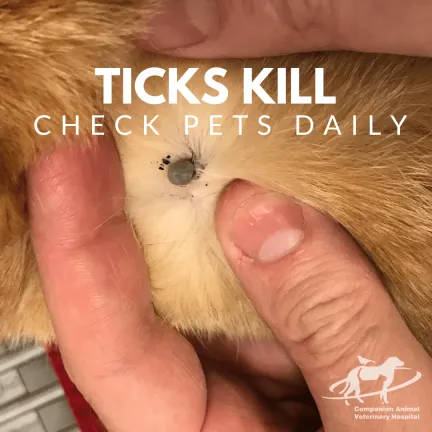Vaccination is at the heart of disease prevention in dogs. We at CAVH recommend for most dogs, that they receive a C5 vaccination, to best protect them from preventable diseases in our area. While most people are aware of the Parvo component of our vaccinations, many people don't know what other diseases their dogs are covered for.
What's in a C5 vaccination?
The 5 in “C5” refers to the 5 different components of the vaccine, each one covering for a different cause of disease.
- Parvovirus - “Parvo” is probably the most well known of the 5. It often makes the news and is in online pet forums. It causes hemorrhagic gastroenteritis - bloody vomit and diarrhoea, and is often fatal, especially in young pups.
- Distemper - Distemper comes from the same virus family as Mumps and Measles in people. It can infect cats but is not dangerous to them. Dogs, foxes and ferrets can also be infected, developing serious disease. It is passed by inhalation and is fatal in about 50% of cases. Signs include high fever, eye and nose discharge, diarrhoea and vomiting and nervous signs. Animals that recover can develop skin changes as well as brain disease in later life.
- Infectious Canine Hepatitis - Is caused by a virus that is spread in faeces, urine, saliva, nasal discharge and blood. It migrates to the tonsils and from there to the liver and kidneys. Symptoms include fever, inappetance, coughing and abdominal pain. Some dogs may get bluing of the eyes, jaundice, vomiting, neurological disease and bleeding disorders.
- Bordetella Bronchiseptica - This bacteria is most common cause of Canine Cough. It causes sneezing and coughing (often with gagging and retching) and is spread by airborne droplets that are highly contagious. Infected dogs can shed the bacteria for many weeks and the bacteria can remain in the environment (in water bowls for example) for many weeks also. Most dogs will eventually recover, however young or debilitated animal may develop serious disease. Pigs and Guinea Pigs can also be affected.
- Canine Parainfluenza- The second most common cause of the cough. Transmission and symptoms are similar to Bordetella which is why they were bundled together as “Kennel Cough” in the past.
While no intervention is guaranteed to prevent disease, vaccinations will continue to play a significant role in keeping our companions happy and healthy into the future.
Read more articles
- Log in to post comments



